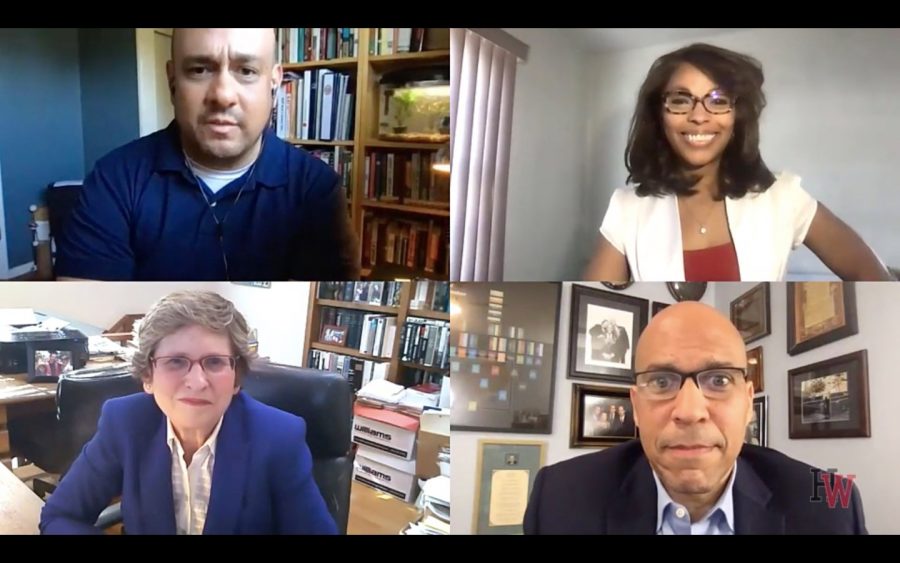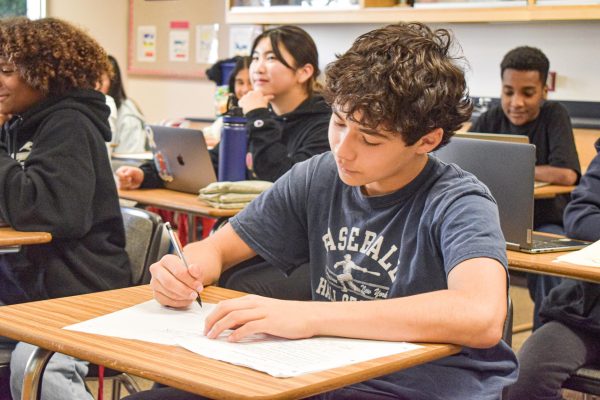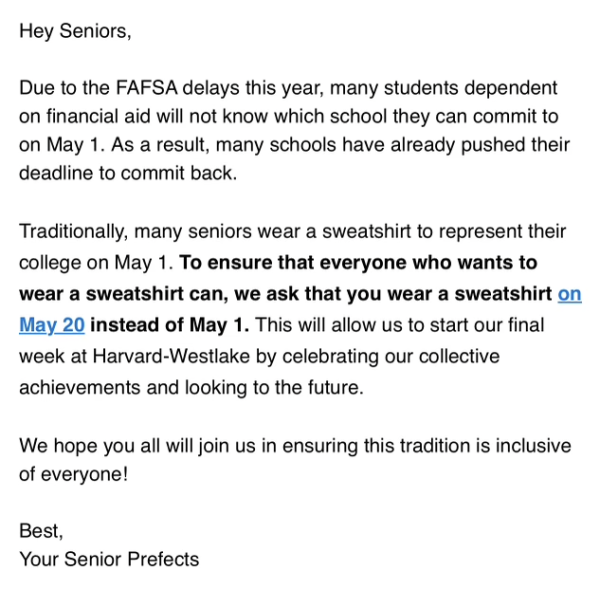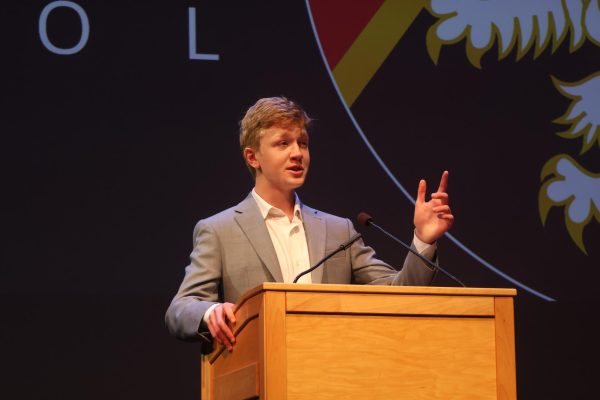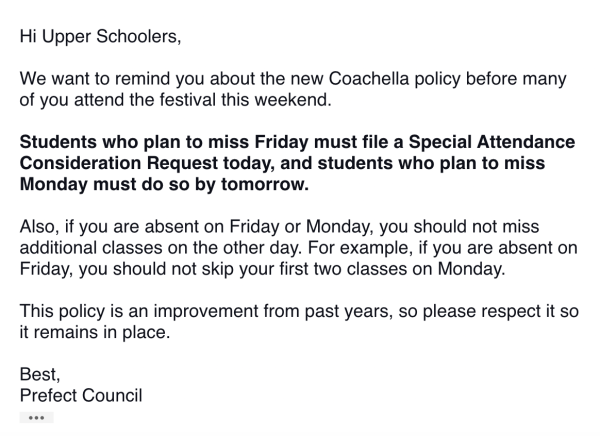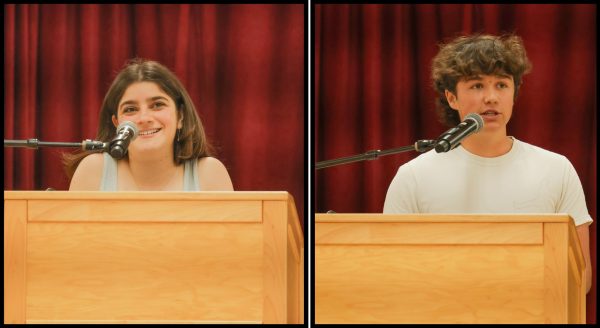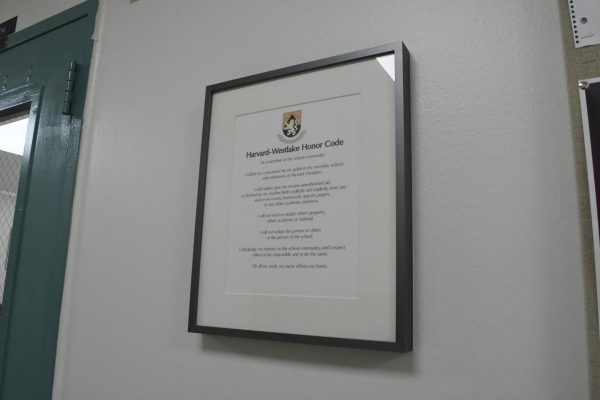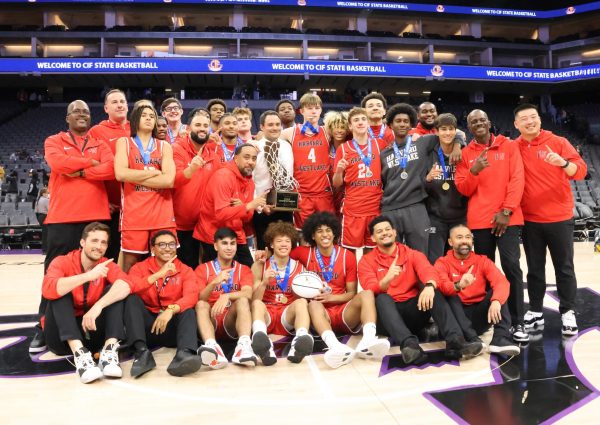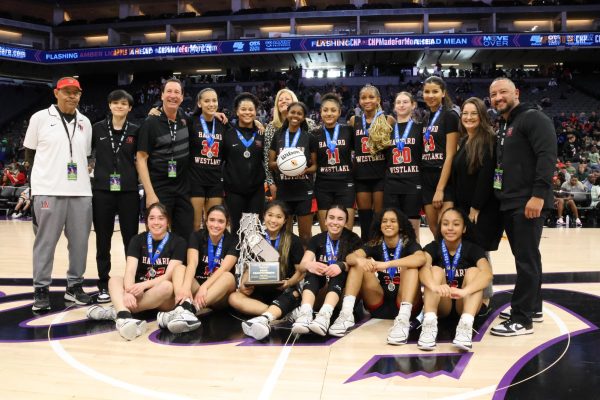Parent DEI Committee presents documentary followed by discussion with Senator Cory Booker
Panelists (Clockwise from top right) Stacy Messaye, Cory Booker, Laurie Levinson and Gabe Ramirez engage in discussion about the justice system.
May 13, 2021
The Harvard-Westlake Parents Diversity, Equity and Inclusion Committee hosted a discussion of Ava DuVernay’s documentary “13th” featuring Senator Cory Booker and author of “Redeeming Justice” Jarrett Adams, who was wrongfully convicted of a crime at age 17.
Founding Faculty Director of Loyola Project for the Innocent (LPI) Laurie Levenson (Solly ’06, Havi ’08, Dani ’17) also engaged in conversation with Booker and Adams to address the structure of the United States justice system. Booker said he is disappointed by the fact that the United States makes up a large fraction of global imprisonment.
“When you lay out the truth of our criminal justice system, you realize that it is not about justice,” Booker said. “In fact, it’s an indefensible institution that reflects not the best of American values, but some of the more base emotions of retribution and discrimination, hurt and harm.”
Booker shared his thoughts on criminal justice
Booker said the proper steps toward rectifying the criminal justice system should be focused on building empathy for those affected.
“To change this system, you have to attack not just the laws and the rules, but a lot of the biases that allow us to dehumanize people that often really need help,” Booker said. “Those are things that are going to take a far bigger movement than we have right now.”
Levenson then introduced Adams, who shared his story of being sentenced to 28 years in prison for sexual assault, a crime he did not commit, and spoke with LPI interns Samantha McLoughlin ’21 and Izzy Welsh ’22. Adams said before his conviction, he never thought that he might experience injustice in his life.
“I always believed that the truth would come out and that we would be vindicated,” Adams said. “I remember, while going through the trial, thinking about how when this was over, I needed to get to the chores that my mother had left for me. It didn’t end that way. I ended up being sentenced to serve 28 years in prison.”
Panelists spoke on their experiences
Adams said his trouble becoming reintegrated into society led him to see the effects of the criminal justice system on exonerated individuals’ mental health.
“I knew I was struggling—and I was also struggling to communicate my struggle—I knew other men and women who went through what I went through were doing the same,” Adams said. “Me and a panel of exonerees created Life After Justice, a non-profit designed to focus on reentry that really highlights the mental healthcare that is needed in our criminal justice system.”
As the panelists discussed police violence, Welsh said she appreciates those working to make changes in policing that she finds important.
“Even through LPI, we were able to talk with the West Hollywood Police Chief, and he shared insights into what their department is doing to combat the institutional racism and the challenges that need to be met with policing,” Welsh said. “I am hopeful, and I’m just grateful that there are certain people out there trying to put in the work to make this reform happen.”
Nilufer Mistry Sheasby ’24 said the opportunity to hear real-life stories about the justice system was enlightening and gave her a stronger grasp of how these structures work.
“Hearing personal testimonials from those who have worked with or been helped by Project Innocence gave me new insight into the criminal justice system that was beyond facts and statistics,” Mistry Sheasby said. “I think when confronting big systemic problems, acknowledging the human faces behind the issues helps us all find empathy and inspires us to be advocates.”































